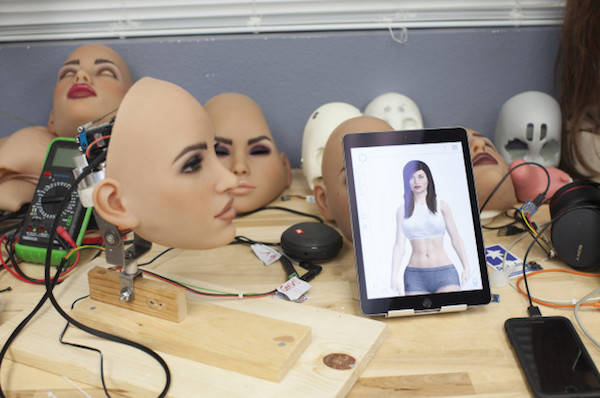Having Sex With Westworld-type Robots May Not Be Good For Your Health, Says Study

“The medical profession needs to be prepared for inevitable questions about the impact of sex robots on health.”
Sex robots are a $30 billion industry. That’s not all that surprising given that some companies are able to regularly sell sexbots costing between $5,000 and $15,000, and are advertised as being the “perfect companion” or offering “unconditional love and support.”
And if they ever figure out how to build truly lifelike Westworld-style robotsthat can have sex with humans, that $30 billion figure will skyrocket. After all, a single day in Westworld costs $40,000.
But doctors Chantal Cox-George at St. George’s University Hospital and Susan Bewley at King’s College in London wanted to know if there was any foundation for claims that sex robots provide health benefits. So they conducted an extensive review, scouring hundreds of journals for studies related to the health aspects of sex robots.
“We found no reports of primary data relating to health aspects of the use of sex robots,” they wrote in the BMJ Sexual & Reproductive Health journal.
Essentially, there is no empirical research or evidence for the clinical use of sex robots.
Scientific studies can be expensive and time-consuming. Sex robots haven’t been widely available for purchase for very long, so robotics researchers may not have thought worth it to invest time into these kinds of studies.
The lack of data could also have to do with the rapid commercial innovation of the sex technology industry.
But the void in data hasn’t stopped beneficial claims from spreading. It’s been suggested that sex dolls and robots can ease feelings of social isolation, promote safe sex, be a therapeutic source for people who struggle to make human connections, and help treat impotence.
The doctors suggest that sex robots could actually have negative impacts on health. There have been claims that sex robots have the potential to treat pedophiles and sex offenders. But the doctors describe a blurred reality that could actually cause some people who use sex robots to become desensitized to sexual exploitation of actual humans.
“While many sexbot users may distinguish between fact and fantasy, some may not, leading to concerns about potentially exacerbating the risk of sexual assault and rape of actual children and adults,” the report stated.
Doctors are already being asked for their professional opinions on sex robots and as the industry grows, those questions will likely become more frequent.
“The medical profession needs to be prepared for inevitable questions about the impact of sex robots on health,” the researchers wrote. “Evidence-based healthcare is at the core of medical professional and practice.”
Though scientists have argued for more research into human-machine relationships, some think its a slippery slope. Kathleen Richardson is an ethics professor at De Montfort University in Leicester, England and created the Campaign Against Sex Robots. “It offends me that they think a human woman is like a machine,” Richardson said.
Maybe a tryst with Dolores or Teddy isn’t such a good idea after all.
No comments: